
All about used fuel processing and recycling
French expertise in used fuel recycling offers a lasting solution to the issue of nuclear waste. While recycling is now recommended for all industries (plastics, metals, glass, batteries, etc.), the nuclear industry has been a pioneer in this area for more than 40 years.

Orano expertise
Thanks to Orano's world-leading industrial-scale technologies, almost 96% of the spent fuel used in nuclear reactors for power generation or research purposes can be recycled. Nuclear material is recoverable to make new fuels that will in turn generate their own electricity. Recycling offers two advantages: it reduces the volume of waste and the consumption of raw materials.
- 96% of used fuel is recyclable
- Thanks to recycling, the volume of the most radioactive waste is reduced by 5 and its radiotoxicity by 10 (in the long-term).
- Nearly 1 in 10 light bulbs in France runs on recycled nuclear materials
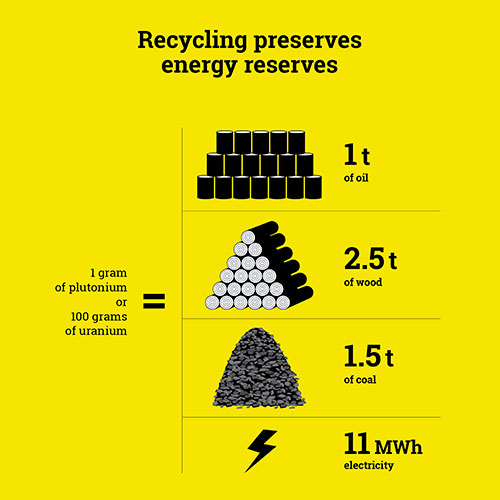
Recycling also reduces industry demand for natural resources: 10% of French nuclear-generated electricity comes from recycled materials. This proportion is likely to increase significantly to up to 25% through recycling of the uranium contained in used fuels (MOX). This figure could technically increase to 30% thanks to MOX 2, a new type of fuel that will allow multi-recycling of nuclear fuels.
Another advantage of recycling is the fact that 4% of final high-level waste is packaged safely for long-term storage. It's embedded in molten glass to securely contain the radioactive elements. This packaging means that the radioactivity of waste can be contained over the very long term (more than 100,000 years). According to the French Nuclear Safety Authority (ASN), when combined with geological storage, this is the safest solution.
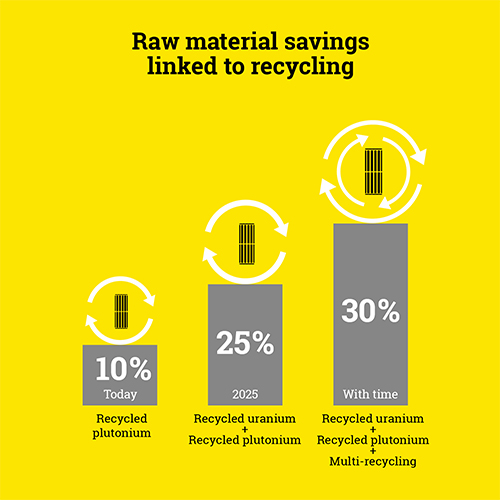
A long-term and responsible solution
By limiting annual production of high-level waste to 200m3, recycling allows us to manage our own waste safely and responsibly, and at a total cost that is roughly equivalent* to the open cycle.
*non-updated
*non-updated
The cost of used fuel recycling for French society represents less than 2% of the national electricity bill, or around €10 per year per household. This amount is going down each year thanks to increased competitiveness made possible by efficient management of industrial facilities, use of innovative processes and technologies, and optimized use of fuel in reactors. In terms of each electricity MWh generated by EDF, the cost of recycling has been reduced by 40% in the space of a decade.
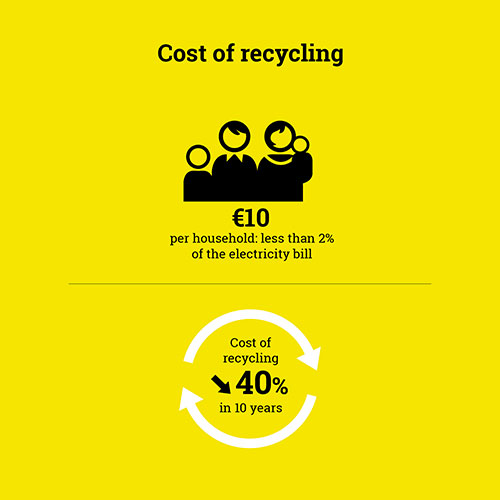
A strategic sector for France
Recycling is a mature industry that depends on 4800 employees at Orano, including more than 125 experts, a similar number of subcontractors and R&D activities. This sector of excellence also has the capacity to adapt to both medium-term energy policy decisions and long-term strategies. It serves both the existing nuclear fleet, new EPR-type constructions and 4th-generation reactors.
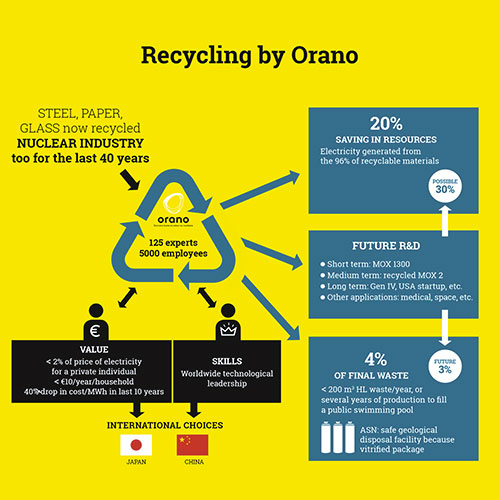
Like France, countries such as Japan, Russia, the Netherlands, Australia, Italy and now China have chosen to recycle their used fuel. Germany, Belgium, and Switzerland have also used Orano technologies in the past.
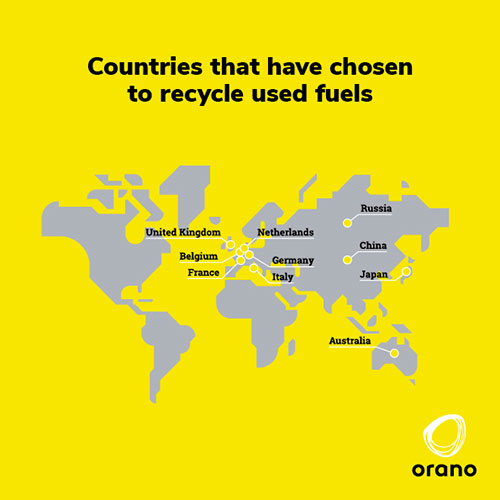
- How our expertise is serving nuclear power The nuclear industry represents the 3rd French industrial sector after the aeronautics and automotive sectors.
- Dismantling: Orano’s global strengths The decommissioning of a nuclear power plant is a complex operation that requires specific expertise. Orano has made this expertise a key asset on the international markets.
- Nuclear fuel: the key takeaways Discover what nuclear fuel is made of, how it’s used and the properties it offers when generating electricity.